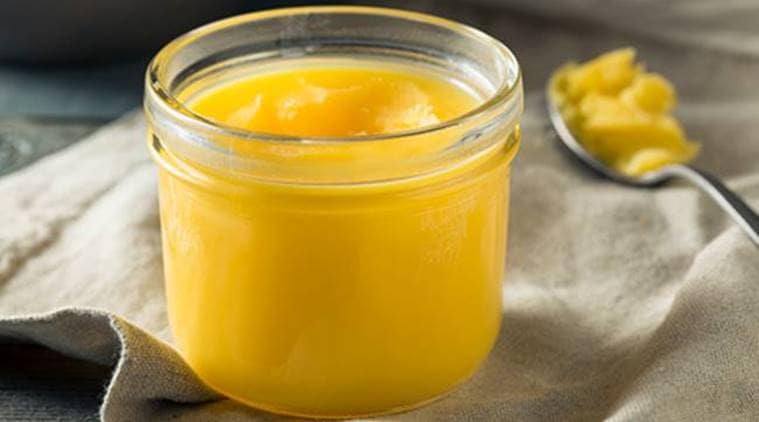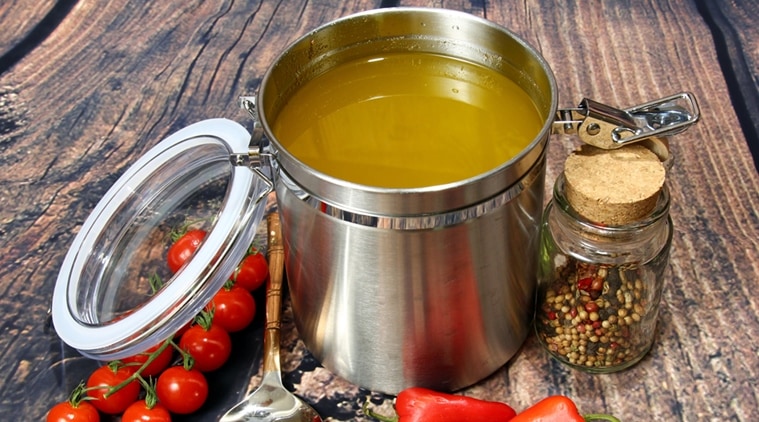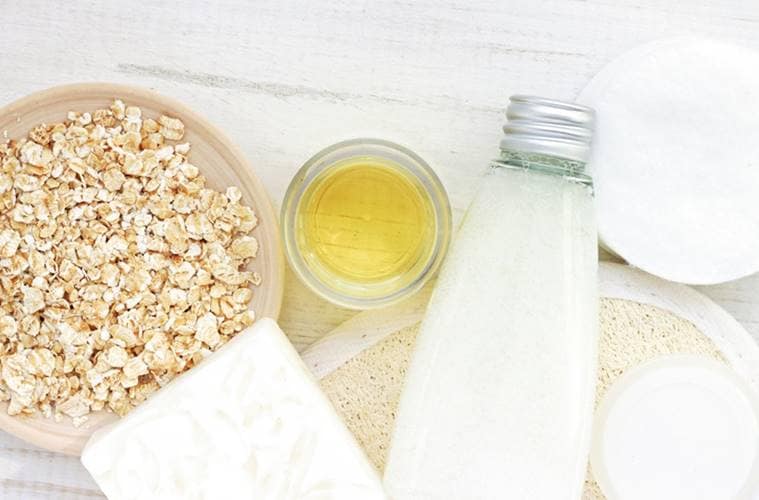From the bottle test to palm test — easy tricks you can bookmark and refer to the next time you wish to check the purity of ghee.

A widely consumed dairy product in India, ghee or clarified butter, which is made from cow’s milk, is an important ingredient in many households. Before vegetable oils came into being, food was primarily cooked in ghee. With time, however, ghee lost its primacy and is now often a part of cooking affairs on special occasions. Ghee is also an important ingredient in many Ayurvedic medicines.
Finding good-quality ghee can often be a task as adulterated cow ghee (mixed with vegetable oils or fats and animal body fats) is widely prevalent in the market. Rancid ghee is often sold in the name of ghee because of its similar colour and texture.
If you are ever unsure about the quality of your ghee, here are some easy tricks you can bookmark and refer to the next time you have a doubt.
Heat test

One of the simplest measures is to heat a teaspoon of ghee in a vessel. If the ghee melts immediately and turns dark brownish in colour, then it is of pure quality. However, if it takes time to melt and turns light yellow in colour, it is best avoided.
Palm test
If a teaspoon of ghee melts in your palm by itself, then it is pure.
Double-boiler method check
To check if the ghee contains traces of coconut oil, melt ghee in a glass jar using the double-boiler method (flat-bottomed insert that fits over a pan of simmering water). Put this jar in the fridge for sometime. If ghee and the coconut oil solidify in separate layers, then the ghee is adulterated.
Iodine test
Add two drops of iodine solution to a small quantity of melted ghee. If the iodine turns purple in colour, then it indicates that the ghee is mixed with starch and should be avoided.
Bottle test

Take a teaspoon of melted ghee in a transparent bottle and as a pinch of sugar to it. Close the container and give it a vigorous shake. Let it stand for five minutes. If a red colour appears at the bottom of the bottle, then the sample contains vegetable oil.
here is a myth about ghee’s fat content but desi cow A2 ghee is low in fats and more in benefits as it contains many rare nutrients such as vitamin D, B, A, K, etc. Due to ghee adulteration many people have lost their faith in getting pure ghee in market, as discussed above are the few proven methods to check purity of ghee at home.
We at GodesiMilk has been always supplying pure and quality products since years. We manufacture ghee by strictly following years old traditional vedic belona method, our ghee not only is rich in taste,aroma but in its nutritional value as well. This might be the reason we are the first choice of many doctors (who suggest our ghee to their patients (suffering from diabetis, obesity, blood pressure, cardiovascular diseases, arthritis, etc)), pregnant / feeding ladies, kids, adults and also priests (who looks for pure ghee for performing holy rituals like homa, yagnas, etc.). At GoDesi you can experience such 100% pure, natural, fresh ghee that is A2 certified and FSSAI licensed. To order this precious, homemade, completely natural and filled with nutrients ghee, you can call or whats app us at +91-9000008303, +91- 7207887740, +91-9573900667 or email us at: contact@godesimilk.com
For any further details contact us.
CREDIT:
https://in.style.yahoo.com/kitchen-hacks-easy-ways-check-053611221.html?soc_rc=community&soc_trk=wa
